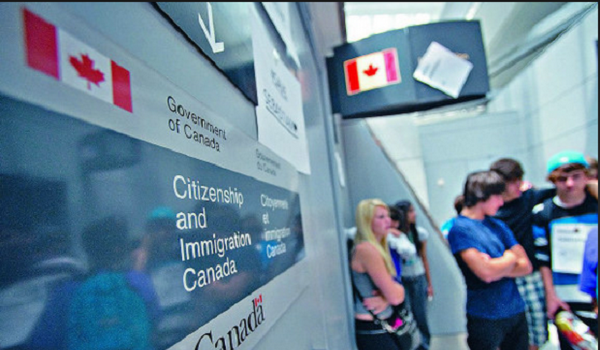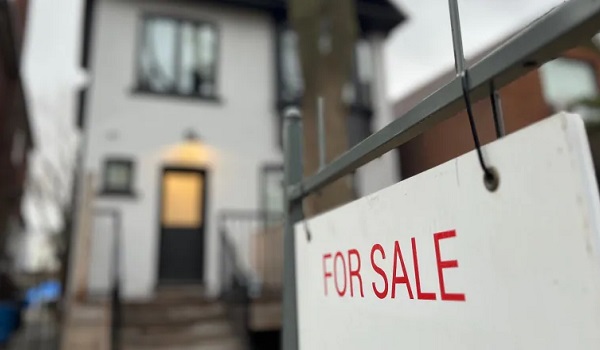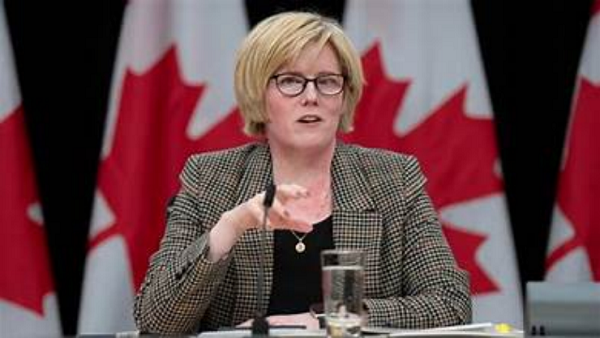Two-thirds of Canadians say immigration target is on the high side, poll suggests
Two-thirds of Canadians say this country’s immigration target is too high, suggests a new poll that points to how opinions on the issue are taking shape along political lines — a shift that could turn immigration into a wedge issue in the next federal election.
A poll by Abacus Data has found the percentage of people who say they oppose the country’s current immigration level has increased six points since July, with 67 per cent of Canadians now saying that taking in 500,000 permanent residents a year is too much.
“The public opinion has shifted in Canada to a point where if a political leader wanted to make this an issue, they could,” said Abacus chair and CEO David Coletto.
“We’re headed into a period where there’s going to be friction.”
Across the political spectrum, 82 per cent of those who voted for the Conservative Party of Canada in the 2021 federal election said the current immigration target is too high, with 63 per cent of NDP voters and 61 per cent of Liberal supporters expressing the same sentiment.
Across the country, 70 per cent of Albertans and Ontarians surveyed said they were unhappy with the immigration level, followed by the respondents in the four Atlantic provinces, at 68 per cent, and in Manitoba and Saskatchewan, at 67 per cent. British Columbians and Quebecers, at 64 per cent and 60 per cent respectively, were not far behind.
Two-thirds of Canadians say this country’s immigration target is too high, suggests a new poll that points to how opinions on the issue are taking shape along political lines — a shift that could turn immigration into a wedge issue in the next federal election.
A poll by Abacus Data has found the percentage of people who say they oppose the country’s current immigration level has increased six points since July, with 67 per cent of Canadians now saying that taking in 500,000 permanent residents a year is too much.
“The public opinion has shifted in Canada to a point where if a political leader wanted to make this an issue, they could,” said Abacus chair and CEO David Coletto.
“We’re headed into a period where there’s going to be friction.”
Across the political spectrum, 82 per cent of those who voted for the Conservative Party of Canada in the 2021 federal election said the current immigration target is too high, with 63 per cent of NDP voters and 61 per cent of Liberal supporters expressing the same sentiment.
Across the country, 70 per cent of Albertans and Ontarians surveyed said they were unhappy with the immigration level, followed by the respondents in the four Atlantic provinces, at 68 per cent, and in Manitoba and Saskatchewan, at 67 per cent. British Columbians and Quebecers, at 64 per cent and 60 per cent respectively, were not far behind.
Unlike the United States, the United Kingdom and across Europe, where immigration is such a polarizing political issue, Coletto said, Canadians generally have supported immigration and have not seen it as a cause for concern.
That is, until the past six to eight months, he said, when the cost of living and of housing, as well as questions over access to health care, have combined to fuel “a sense of scarcity.”
Historically, the majority of Canadians had shown support for immigration and a Environics survey reported as recently as the fall of 2022 that seven in ten Canadians backed the country’s immigration levels — the largest majority ever recorded by the pollster in 45 years.
“We were complacent,” said Coletto. “If we believe Canada is immune to the same forces (experienced in other countries), this polling data proves otherwise. It proves that we can’t assume that Canadians are just different from the rest of the world.”
Successive federal governments maintained a high immigration level, averaging 250,000 new permanent residents a year, since the late 1990s as a strategy to grow the population and economy.
Under the Liberal government returned to power in late 2015, the number surpassed 300,000 before it dipped when the pandemic hit and halted immigration processing amid border restrictions and office lockdowns. Last year, the country welcomed 431,645 newcomers, and 465,000 are expected in 2023.
So far, all major federal political leaders still appear to be in favour of high immigration levels and none has expressed publicly a desire to rein in the number. Coletto warned that could change if the next federal election is a tight race and public pressure intensifies.
The Netherlands saw a right-wing populist scoring a major victory in a general election this month, riding on anti-immigration sentiment, blaming a housing shortage on flows of asylum seekers and drawing on widespread concerns about the cost of living and the overburdened health-care system, according to Reuters.
“If you need something to win and you can’t find another issue, immigration might become that issue,” said Coletto. “If the housing crisis continues to get worse, if the health-care system isn’t improved, there’s a chance this becomes much more salient.”
Although younger respondents, ages 18-29, were most pro-immigration compared to those who were 60 and over, he said the widespread dissatisfaction with the immigration level is driven by the fact that post-pandemic economic woes have cut across generations.
When young people hoping to buy a home are finding their dreams out of reach and seniors are caught up in hospital hallways, he said, they all look for causes for their miseries.
“The problem that we’re facing in Canada and why we’re seeing a widespread level of resistance is because of the perception that immigration is having a negative effect on different things that are meaningful to different people,” he said. “That’s creating a universal feeling.”
When asked if immigration is making Canada better or worse, 24 per cent of the 2,000 participants in the survey responded favourably and 43 per cent said it made Canada worse. While 27 per cent said it had neutral impact, six per cent said they didn’t know.
Abacus conducted the survey of 2,000 Canadians over the age of 18 Nov. 9-12, and the margin of error is +/- 2.19 percentage points 19 times out of 20.
However, compared to the previous Abacus poll in July, the perception that immigration was good for Canada has increasingly been chipped away by all measures:
- 46 per cent said it would help address labour shortages, down from 50 per cent;
- 36 per cent said it’s good for economic growth, down from 43 per cent;
- 31 per cent said it would attract new businesses, down from 37 per cent;
- 14 per cent said it would improve access to health care, down from 17 per cent;
- Eight per cent said it would have a positive impact on housing cost and availability, down from 11 per cent.
Coletto said it’s important Canadians recognize immigration is the driver of the economy and must grow to make up for the country’s aging population.
“How do we care for those baby boomers who are aging? How do we continue to grow the economy? How do we fill all the labour shortage? How do we build all the houses that we need to build?” he asked.
“It’s going to be done through immigration. So we have to find a way through public policy, through better decision making, to bring people along and not create more division.”
Coletto said officials need to show the public some thoughtfulness in allaying their fears that Canada is “recklessly” increasing immigration without thinking of its effects.
“It’s essential we get this right and that Canada’s population continues to grow,” he said. “But they have to back it up with a plan that lays out how they’re going to mitigate the negative effects that people believe this level of immigration is having.”
This article was reported by The Star
















